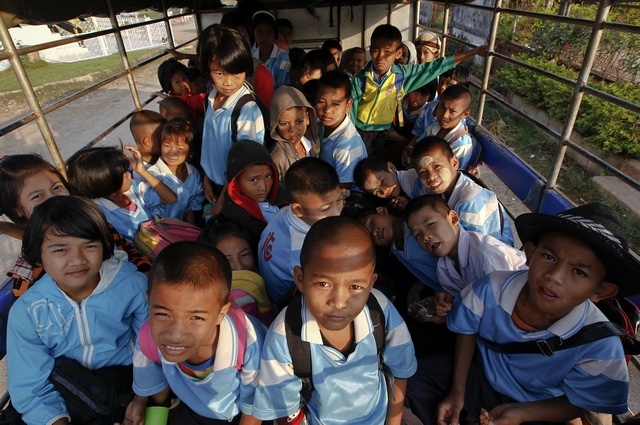More than two dozen migrant schools in western Thailand face closure as international donors continue to slash funding for groups on the Thai-Burma border, a local NGO has warned.
Twenty-five schools, teaching as many as 5,000 students in Thailand’s Tak province, have been left without financial assistance for the year 2013-2014, raising concerns that they will be forced to shut down, according to a local migrant group.
“Funding for migrant organisations this year has decreased as most of the donors have moved inside Burma,” Naw Paw Ray, chairperson from the Burmese Migrant Workers’ Education Committee, told DVB.
“About 25 of 74 migrant schools in Tak are yet to receive any assistance and they are unable to pay the teachers, their rent, electricity and water bills. Some of the schools have lost students as they could not provide transportation for them.”
Funding for border groups, including schools and health care facilities, has seen a significant decline since the start of last year. In late June, The Border Consortium (TBC) – which coordinates humanitarian assistance for Burmese refugees living on the border — announced that it would cut food rations to some 128,000 people across nine camps under its care.
Dozens of other groups, including the renowned Mae Tao clinic, which offers free medical care to Burmese migrants and refugees, have also been forced to cut back crucial services.
Burma, which is slowly emerging from nearly five decades of military rule, has become a new hotspot for aid groups and has attracted a massive influx of humanitarian funding. But NGOs working on the border say they have been short-changed in the process.
Naw Paw Ray said the Burmese government had previously pledged to donate textbooks for the underfunded migrant schools, but their offer had yet to materialise. She added that nearly 200 teachers still needed to be paid.
“If they can’t pay the teachers decently, then the teachers will go and find other jobs. This makes us concerned about the schools’ survival.”
According to the International Labour Organization, over 200,000 Burmese children under the age of 17 live in Thailand. Less than 20 percent are estimated to attend school, mostly through specialist programmes set up by local NGOs.
Although Thai law stipulates that all children, regardless of their immigration status, are allowed to attend school, migrant children are often excluded for practical reasons, such as financial or language barriers, and forced to start working instead.
There are 74 Burmese migrant schools providing free education to some 10,000 students in Tak province in western Burma.



